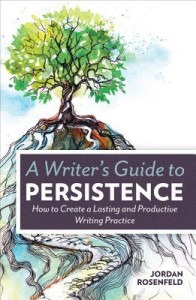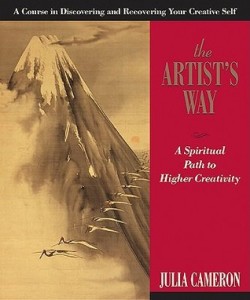Your inner muse is the voice of your experiences – both real and desired.

That inner muse can be elusive. It is who we blame for our writer’s block.
But there is a secret to keeping that muse away from the straight jacket of silence. That secret is understanding the two truths of the inner muse which no one talks about.
Those two truths, once realized, will forever unfetter your inner muse. This month’s theme is about how life’s experiences shape what we write. We know that our experiences shape our perception and hence what we write. Experience also shapes what our inner muse reveals. But, did you know that there is a way to tap into those experiences while letting the muse do its sorting and compiling to create those aha! moments?
Tapping into our experiences happens when we’re aware of the two truths about the inner muse that no one talks about:
1) Inspiration isn’t always obvious; and
2) You may not realize what you know.
It seems that I’m stating the obvious. But without conscious awareness of these two truths, your inner muse doesn’t have permission to stay away from the straight jacket of silence.
What these two truths mean is that what inspires you to create a world and to write the story can be hidden somewhere deep inside and you don’t even know it.
Can you dig it out? Find it? Use it? Of course you can. The best way to do that is to not go looking for it. Sometimes, you’ve just got to let it happen. Sometimes you just have to be literal about being inspired. Here’s what I mean:
To be inspired means to be in spirit. That means giving your muse permission to access all that information in your head, all those observations and the situations you’ve experienced. It means letting your muse make the associations it needs to and to draw from the library of your inner knowing.
All you have to do to succeed is to trust it. Yes, trust your muse, trust what you know even if you’re not aware of it. Why? Because:
1) Inspiration isn’t always obvious
Sometimes we have an aha! moment which inspires a scene, a story even or a moment in the book. More often it comes from somewhere deep within. How often have you read what you’ve written and wondered how you knew to write that, or to word it that way, or your character has surprised you? Those are the moments when inspiration isn’t obvious and you may never figure out what inspired you to write what you did, but aren’t you glad your inner muse was working for you?
Our brain likes to make associations, find familiar in the unfamiliar, and find patterns. It sees shapes in clouds, a face in a whorl of wood, that phone number is all primes and if I add the first two numbers together…
The trick is to trust the inner muse and to trust that it’s working for you. Forcing the writing, forcing a scene, rarely works. It has to come from the characters and the situations we created and from the inner muse which understands those creations at a much more profound level than what we are sometimes aware of.
2) You may not realize what you know
I’m a kid from the farm. It took a little while for me to realize that most of my stories happen in rural settings in whichever genre I’m writing. I have detail which I take for granted and other people have to research. I understand the relationship people have with the land and animals. I have planted, harvested and marketed, I have prepared and stored food for the winter and have experienced limited access to store bought foods,.
It’s the same thing with the characters we create. We tend toward the familiar, especially when it comes to relationships. That’s when patterns in our writing occur. Strong female, weak male characters or vice versa. Female characters who hate their fathers. Male characters who are emotionally deprived heroes. There are countless patterns and stereotypes we fall into because it’s subconsciously familiar in some way. It’s the material the muse has to work with.
Whether it’s settings or characters, relationships or values and ethics, our inner muse has the information of who and what we are and uses it, even if we don’t realize that’s what is happening.
So we don’t always realize what we know and even what we don’t know. But when we consciously let the muse do its work, when we become consciously aware of the work it is doing, then we can form a relationship with it that changes what we write. We can give the muse permission to explore new situations, characters and relationships. This awareness allows us to ask for help to change the pool of information the muse has to work with. In a critique group I’m in, a well published author informed us that she had become aware that she always wrote a specific father-daughter relationship into her stories and she understood why. Now she wanted to change it up.
The two truths contradict each other:
“Trust inspiration” versus “Don’t trust what it’s telling you”.
Or, so it seems at first glance. But the real axiom is:
Trust Inspiration. Understand what it’s telling you so that you can change it up – if you wish.

We, and our inner muse, are the sum total of our experiences. As writers, we’re not always aware of what we know and what we don’t know. The more we write, the more opportunity we have to understand what informs our writing and to change and expand upon that.
You know that the writing myth that says you’ve got to write a million words before you’ve got a chance to be successful? It’s not about the word count, it’s about understanding your inner muse and developing a comfortable, trustworthy relationship with it. Sometimes, it takes a million words before you realize you’re basically writing the same story, the same themes albeit in different settings and milieus. Once you realize that, you’ve hear your inner muse. Now, you can give it new fodder, inform it with new information and experiences. You can give it permission to shake it up a bit.
Will you need a million words to do this? Maybe yes. Maybe no. And remember, I used the word ‘myth’ for a reason.
Inspiration isn’t always obvious and you may not realize what you know – once these two unspoken truths are understood, your life experiences will shape your writing in ways you never imagined it could! So, trust Inspiration and understand what it’s telling you so that you can change it up – if you wish.












